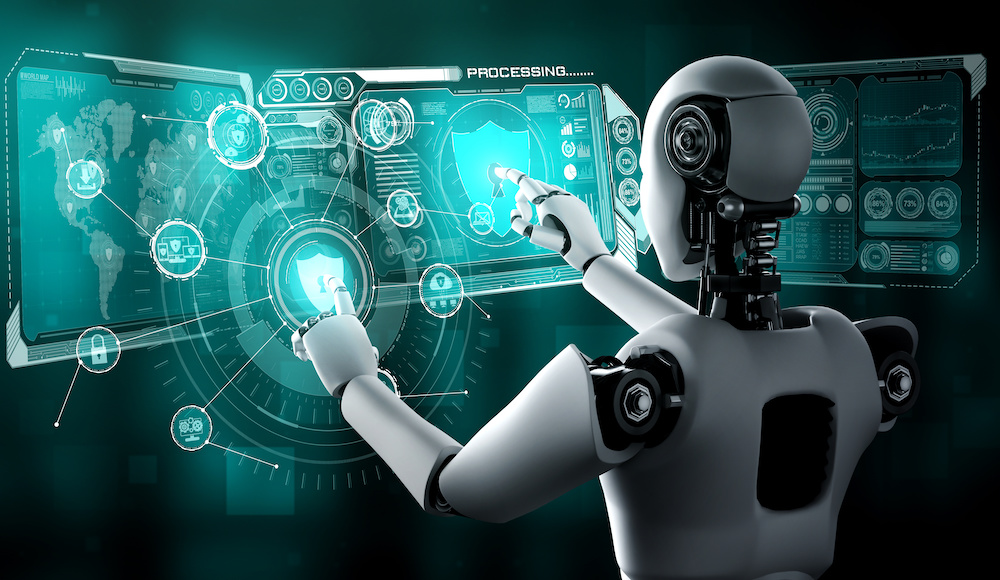We live in a world where cyberattacks continue to evolve at an alarming pace, and the traditional methods of cybersecurity often fall short. Artificial intelligence has become a game-changer in detecting, analyzing, and neutralizing digital threats. According to Chuck Everette from Deep Instinct, AI systems boast security rates of 80% to 92%, surpassing the rates achieved by legacy systems.
Read on to learn how AI can strengthen your security, the challenges it faces, and its future potential.
The Role of AI in Cybersecurity
Traditional security systems rely on set rules and known threat databases. AI, on the other hand, can learn and adapt. It analyzes patterns in data, identifying potential threats in real time. This proactive approach helps in detecting and responding to new types of cyberattacks that conventional systems might miss.
Benefits of AI in Cybersecurity
- Enhanced Threat Detection: AI algorithms excel in recognizing unusual patterns or anomalies in large datasets. This capability is crucial for identifying sophisticated cyber threats.
- Automated Responses: AI can automate responses to security incidents. This rapid reaction time is vital in mitigating the impact of cyberattacks.
- Predictive Capabilities: AI can predict potential vulnerabilities by analyzing trends, helping to prevent breaches before they occur.
- Efficiency: AI systems can operate 24/7, handling large volumes of data more efficiently than human teams.

Challenges and Considerations
While AI in cybersecurity offers many benefits, there are some things to consider:
- Data Dependency: AI models require huge amounts of data for training. The quality and relevance of this data is crucial for strong security.
- Evolving Threats: As AI in cybersecurity advances, so do the methods cybercriminals use. They too are using AI, leading to an ongoing race with technology.
- Ethical and Privacy Concerns: The use of AI in monitoring and data analysis raises privacy concerns. Balancing security and privacy rights is a delicate task.
- Complexity and Cost: Implementing AI in cybersecurity can be complex and costly, particularly for small businesses.
The Future of AI in Cybersecurity
The future of AI in cybersecurity is promising. We’ll likely see more sophisticated AI-driven security solutions, unfortunately along with evolving threats that also leverage AI. The key lies in continuous innovation, ethical considerations, and collaboration within the cybersecurity community.
AI is revolutionizing how we protect our businesses and empowers us to navigate the digital landscape with greater confidence. It acts as an intelligent shield, anticipating and neutralizing threats before they can cause any harm. With AI’s advanced capabilities, our defenses are smarter and more proactive, providing us with robust protection against cyberattacks. As we continue to embrace technology and its vast potential we can make informed decisions, we can harness AI to stay one step ahead.
About Logista Solutions
Logista Solutions is a nationally recognized leader in a broad range of technology management solutions. As one of the largest technology support providers in the U.S., Logista provides innovative and holistic solutions to help companies take control of their IT infrastructure and achieve better business outcomes. Popular services include Managed IT as a Service, VoIP and Unified Communications, Managed Print, Cloud Services and Asset Disposition.





